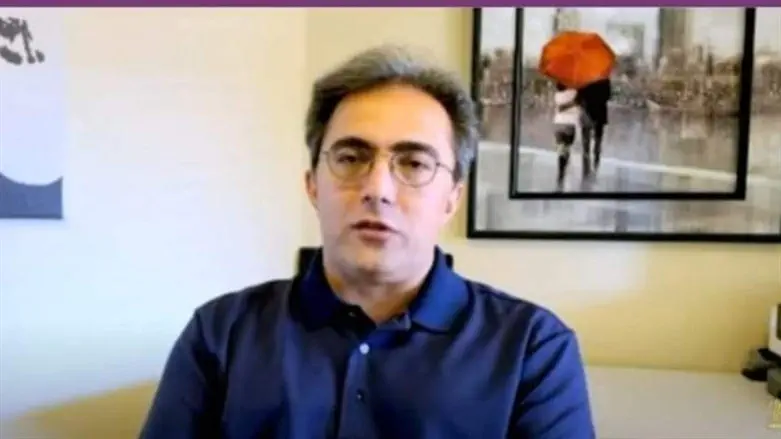
Since the 1979 revolt against the Shah, Iran's regime of criminal mullahs has built a network of terrorist proxies across the Middle East. In actuality, Iran's web of terrorist partners in the region could pose a significant threat to the United States, Israel and its allies in the Middle East. The violent Quds Force is at the heart of this transnational terrorist network and known for its acts of terrorism.
King Abdullah of Saudi Arabia knew where he was standing. He repeatedly encouraged the United States to “cut off the head of the snake” by launching military strikes to destroy Iran’s nuclear program, according to leaked U.S. diplomatic cables. {See a copy of the cable dated April 20, 2008, published on the New York Times website.}
It is accurate to say that after 1979, a sword has fallen into the hands of a brigand. The evil-natured mullahs became leaders in Iran and their plans make for a world conflagration.
Alas, there is ambiguity in the U.S. policy and strategy to counter Iran's growing hostile presence in the region and the world. Almost certainly, there's no clear vision among the U.S. allies and partners to deter the threats to U.S. interests posed by malicious activities of Iran, IRGC, Qods Force, and Hezbollah. The thugs and agents of Iran may already be present at the U.S. borders with Mexico, Canada and at other international borders within the Western Hemisphere. .
Iran's entry into the cold war with Saudi Arabi after 1979 means that mullah’s regime is seeking hegemony. The full scope of its ambitions in this part of the world isn't clear.so monitoring these activities in the region is thus extremely important for Israel.
On the credit side, there is no room for doubt that the region is no place for Iranian mullah’s meddling and using their access and emerging regional nonstate actors and affinity organizations anymore. Regional order can push back Iran and close in on its borders.
The Abraham Accord was a victory for peace and stability in the region. The only opponent of the accord was that of the mullahs in Tehran who stuck by their Transnational Terrorist Network throughout. The terrorist proxies revealed their true colors and ranged against Israel and new allies in the region in the mullah’s book “Antisemitism Is Inseparable from Khomeinism.”.
Since then, the Persian Gulf states are normalizing their relations with Israel and their relationship has taken a turn for the better. The strengthening peace in the Middle East is the mullahs' funeral. And the internal situation in Iran shows that the regime is on the edge of an abyss.
Incontestably, mutual understanding, cooperation and coexistence and respect for human dignity and freedom are the important principles of this Accord.
Pursuing a vision of peace, security and prosperity leads to Israel-Saudi forthcoming relations. The modern world is persuaded by the constant attempts to strengthen and increase such friendly relations based on shared interests and a shared commitment to an effective future.
Nowadays, admirably, the director of Mossad encourages efforts to promote interfaith and intercultural dialogue to advance a culture of peace between the region of the Jews and the lands of Islam. David Barnea knows well that the potential future historic relations between Saudi Arabia and Israel will be the great picture of the modern Middle East, and that the only treacherous actor on the stage is the isolated regime in Tehran.
“Israel, a friend of Iran's historic legacy”can have a larger role in pushing for regime change in Iran. Even though “Biden's Iran policy is a disaster!”, without doubt “CIA, Mossad, and regime change in Iran” will be a significant issue after declaring normalized Saudi-Israel relations.
From the point of Israeli national security, the aim of Mossad is to reduce the risk from Iran’s terrorism to the soil of Israel, its citizens and interests overseas, as well as responsibility for Jewish freedom and security. A byproduct of improving relations with the Persian Gulf’s states is that the Jewish people can live freely and with confidence.
For obvious reasons, the priorities of Mossad are to resolutely protect Jews from terrorism and other homeland security threats. But these days, Barnea has played a key role in Israeli diplomacy. A Spymaster is more concerned in negotiating and making deal which makes his other challenges easier to meet.
Erfan Fardis a counter-terrorism analyst and Middle East Studies researcher based in Washington, DC. He is in Middle Eastern regional security affairs with a particular focus on Iran, counter terrorism, IRGC, MOIS and ethnic conflicts in MENA. He graduated in International Security Studies (London M. University, UK), and in International Relations (CSU-LA). Erfan is a Jewish Kurd of Iran, and he is fluent in Persian, Kurdish, Arabic and English. / Follow him from this twitter account @EQFARD / The newly published book of Erfan Fard is: “The gruesome mullah” , which has been published in the USA. www.erfanfard.net